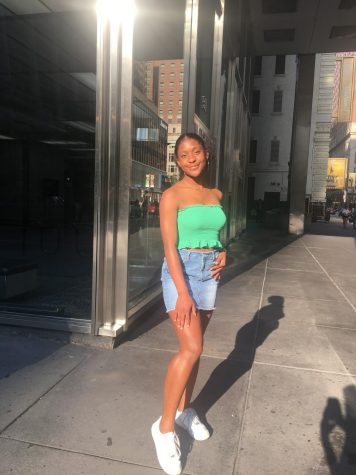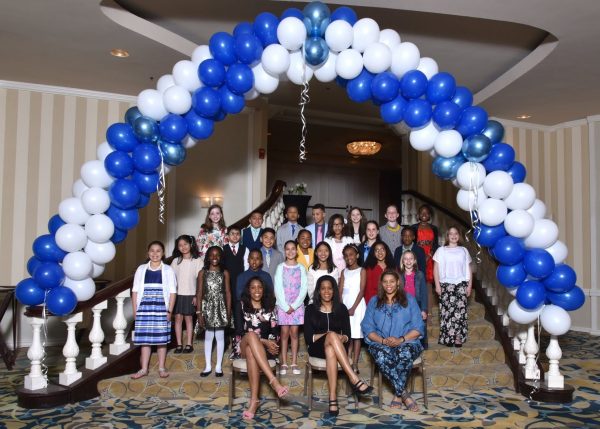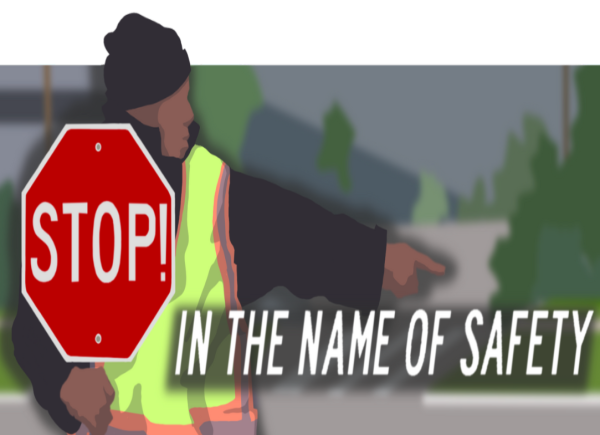A Lightfoot victory could be historic for representation
February 15, 2019
JAN. 27, 2019 — A private residence presiding in east Evanston hosted Chicago Mayoral candidate Lori Lightfoot for a fundraiser and Q&A session. As I entered the space with multiple peers for an AP Government/US Politics field trip, the visible demographics of the audience were predominantly different from my own racial identity as an African-American woman. With the exception of students such as myself, the attendees paid anywhere from $50 [limited discount tickets] to $5,000 [for a chair position]. As we waited together in anticipation for the candidate’s arrival, I engaged in conversation with many of her supporters, all with different personal and political backgrounds. Standing close to me was an Evanston resident who was a lawyer and parent of an ETHS student. Standing on the other side of me was another resident who was a social justice activist in our community.
If elected, Lightfoot would be the first black woman and openly gay mayor of Chicago. Lightfoot has vocally expressed support of the LGBTQIA+ community during her campaign.
Her candidacy and potential election would make real change in Chicago’s political spectrum, allowing space for a new voice and for racial representation. In Chicago and Evanston history, their mayors have predominantly identified as white men, with the exception of Chicago mayors Eugene Sawyer and Harold Washington and Evanston’s Lorraine Morton.
Yet, for some attendees, there was no clear connection between Lightfoot’s presence at this event and Evanston as a community at-large.
“It [the event] didn’t reach Evanston, it reached a subset of Evanston belonging to rich white people,” senior Liana Wallace says.
Lightfoot’s talk began with her childhood, as a person who experienced economic instability and social inequity. However, those truths did not determine her educational success — in which she thrived. After graduating from the University of Michigan, she moved to Chicago in 1986 to attend the University of Chicago Law School.
Within her years in the Chicagoland area, Lightfoot shared that her understanding of politics were shaped by the Chicago atmosphere.
During the Q&A session, I asked Lightfoot how the multiple identities she holds could influence her role in Chicago politics. Lightfoot immediately named parts of her identity in respect to her race, gender and socioeconomic upbringing. She did not, however, answer my question about the potential impact her identities might have on her message or her policies.
In response to questions about her agenda for education, Lightfoot expressed that she believes in CPS, but that there are some inconsistencies within the system.
“[I] don’t want kids growing up feeling like they don’t have any hope or opportunities,” Lightfoot says.
Catie Bryant, junior, asked Lightfoot about her response to the sexual harassment and assault incidences within CPS.
“CPS utterly failed, and they still have a lot of work to do,” Lightfoot says.
Lightfoot went on to list her qualification and experiences in Chicago, speaking more specifically about her role as Chief of Staff and General Counsel of the Chicago Office of Emergency Management and Communications [OEMC] and Assistant United States Attorney. She emphasized multiple times her professional history in Chicago. Lightfoot detailed more about her role as President of the Chicago Police Board gave her insight into how Chicago politics work.
When an audience member asked Lightfoot about her thoughts on police brutality, she responded, “[I] will not be silent and not be complicit concerning what should be done about violence in Chicago.”
Towards the closing of Lightfoot’s address, she states, “[Chicagoans] will not make progress if we elect the same old, same old.”
While no Evanstonians can vote for Lightfoot, her candidacy challenges issues around representation in politics and local issues that affect communities in and around Chicago.
While Lightfoot does not speak to this, her campaign gives a voice to the black and LGBTQIA+ community, and has the possibility to inspire future politicians who may identify from this community. In effect, her campaign is historic.
“I believe she represents the Chicagoland and suburban areas well and would serve as a strong mayor who reflects the views of the community,” Bryant says.
Lightfoot ended the event by reminding the audience how close the race is to the end, and how necessary it is for the residents of Chicago to vote with the primaries coming up on Feb. 26. While my peers and I don’t reside in Chicago, there are lasting effects of her campaign and her potential mayoral term on young people like myself and my peers who may vote or run for public positions.
“We have to change the course of our history,” Lightfoot states.


















